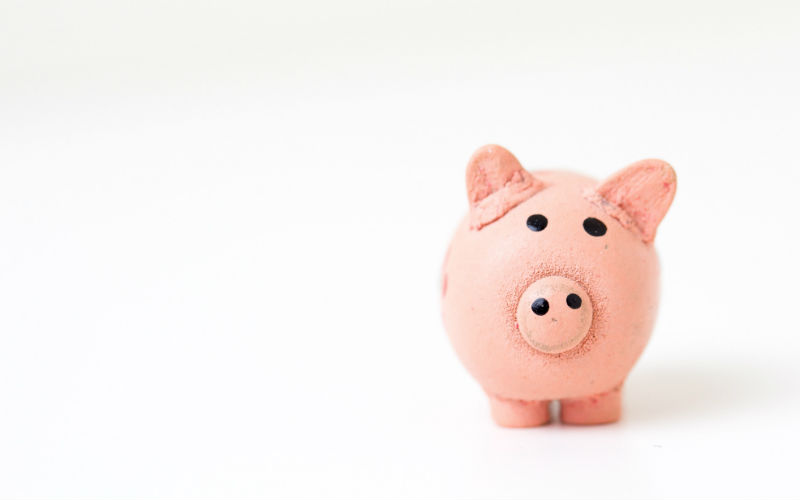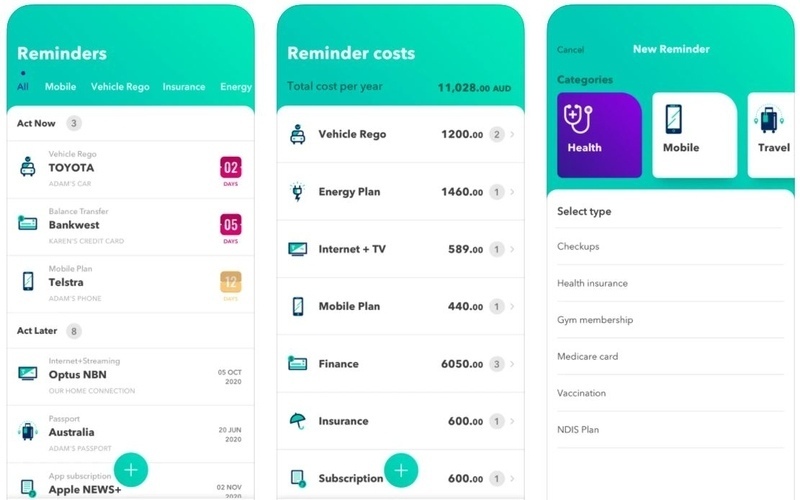Some have lost jobs while others have had hours reduced, and although there are some pretty extensive stimulus measures out there that are helping, these won’t be enough for everyone. So it stands to reason that a lot of us will have to make some monetary sacrifices during the next few months (or maybe longer) to get by.
One married couple - Construction Engineer Alan Rowe and Site Administrator Chloe Rowe - have shared with Savings.com.au the exact ways they’ve been saving during COVID-19, including:
- How their personal financial situation has changed (for better or for worse)
- How much they’ve managed to save so far
- The non-essentials they’ve cut out
- How easy or hard it was to start saving
- What their number one tip is for saving money at the moment
How has your personal financial situation changed during COVID-19?
“My wife Chloe and I still have our jobs at this time, fortunately -- however with the situation constantly evolving, we are definitely monitoring how other industries are performing and what this means for construction,” Mr Rowe told Savings.com.au.
“We’re starting to review our finances and planning our budget in case of a complete lockdown or if something happens with our jobs.
“It’s nothing too fancy, but we’re taking small steps like increasing the ‘buffer’ of savings we put away each month whilst we are lucky to still be employed.”
It’s generally recommended you have between three and six months (at least) of living expenses saved up in the event of an emergency in case you can no longer work (such as during a COVID-19 shutdown).
What non-essentials have you cut out?
“I think streaming is quite common and definitely increasing these days, but we don’t have Netflix or home internet so we’re saving on those monthly subscription payments.
“More recently with the current climate of social distancing we’ve had to cut out spending on little luxuries like going out to the cinema, entertainment and restaurants.
“That’s a small sum of money we are now able to put aside. We’re only going out for essentials at this time.”
Not having internet obviously won’t be possible for many of us, especially if you’re working from home. But some Telco companies such as Optus and Telstra are offering COVID-19 support options such as:
- Waiving late payment fees on phone and internet plans
- Offering extra data at no extra charge (or a reduced charge)
- Suspending disconnection and credit collection activities
- Expanded access to their financial hardship programs
If you’re having trouble paying your phone and internet bills, contact your provider to see what they can do for you.
Is there anything you’ve increased spending on?
“In all honesty, we are trying to be careful with how we spend money - although stocking up on necessities is costing us!
“Otherwise, we have also been spending a bit more money on buying groceries and condiments, since Chloe and I are now preparing more meals from home.
“But we generally consider ourselves more on the ‘saver’ side and would like to keep it that way until the end of the pandemic.”
The Rowe’s aren’t alone in spending more on the essentials. In general, Commbank credit card data found food spending rose by 49% year-on-year as at March 24, while grocery spending rose by 74%.
The data also revealed which areas of spending have experienced the biggest falls, including:
- Recreation spending (down 16.4%)
- Transport spending (down 7.1%)
How easy was it to review your finances? What was the hardest part?
“We are pretty much your average household - we try to save a portion of our salary every month, pay our bills and split up what’s leftover to manage through to the next payday. At the same time, we try not to be too hard on ourselves when it comes to spending.
“So far we have been lucky enough not to have gotten to the “hard parts” yet, as we’re both still working full time from home, but we are aware of our options. Our financial commitments are moderate. Our main commitment is our car loan which we have through the Bank of Queensland – although our situation is normal for now, Bank of Queensland were proactive in contacting us to offer their support and guidance should our situation change in the future.
“As we are still trying to balance this with other expenses and saving up for our very own house, we’re trying to avoid dipping into our savings as much as possible.”
Although it can be tough to look at your transaction history, doing so is key to separating the essentials from the not-so-essentials. Here’s our ultimate guide to budgeting and saving to help you get started.
Can you put a $ figure on how much you’ve saved?
“Currently, we’re saving roughly 30% of our combined income. We’re trying to increase this to 35% over the coming weeks and months in case the COVID-19 situation worsens.”
Cutting back where you can during your time in isolation can definitely help you up your savings to that 30-35% mark. So for a worker earning around $55,000 per year, they would be putting away over $370 a week ($19,250 a year) in savings at that rate, or roughly $300 per week after-tax ($15,567 a year).
The number one tip for saving during COVID-19
Alan and Chloe said their single biggest tip for saving at the moment is to be realistic about what you can afford to save, and then up it by 10%.
“By creating a buffer you’re giving yourself the flexibility and leniency that if you ever need to dip into your extra pot of money on occasion you can still meet your original savings target,” they said.
Three savings tips from a banker
BOQ’s General Manager of Product Andrew Toone offered Savings.com.au three of his own COVID-19 savings tips you can do from your own home:
1. Use a high-interest savings account
“We often hear of the importance of putting away money for ‘a rainy day’. Having a savings account as a buffer when things go wrong is more important now than ever,” Mr Toone said.
“In addition to simply setting aside some money, you should also look into what high-interest savings accounts are out there, so you can make sure your money continues to grow!
“A high-interest savings account will pay a higher-than-average interest compared to traditional savings accounts.”
2. Make a list before shopping
“Always make a list before shopping. No matter what you’re shopping for, making a list will help you stick to a budget,” Mr Toone said.
“Shopping with a list gives you a close estimate as to what you’ll be spending so you don’t go over budget. These days when basic necessities can be hard to find it’s easy to grab anything you can get your hands on.
“Make sure it is something on your list that you will actually use, otherwise you are just wasting your money.”
3. Be mindful of appliance use
“It’s an obvious one but turn off lights and appliances when you aren’t using them.
“Being home more often means we are using these appliances more than we would, make sure to turn off everything at the wall when not in use to make sure your power bills aren’t going to skyrocket during this time.”
Savings.com.au’s two cents
Everyone’s situation is unique, so there’s no guarantee that what works for one couple will necessarily work for you also. But things like sitting down and reviewing your budget, cutting out all non-essentials and ensuring that at least some of your pay each week is going towards an emergency savings fund could see future-you be thankful for the scrimping you do now.
Other useful COVID-19 guides and news:
- The banks offering special term deposit rates in the midst of COVID-19 crisis
- Banks to defer loan repayments for six months due to coronavirus crisis
- Morrison Government announces six-month moratorium on rental evictions
- 'Job Keeper' allowance: Details of $1,500 coronavirus wage subsidy revealed
- What stimulus is the Government offering to small businesses?
- Working from home due to COVID-19? Here's what it means for your tax return
- How will your credit score be affected by COVID-19?
- Health insurers to suspend April price hikes during COVID-19
- How to actually receive your stimulus payments
- Should you withdraw from your superannuation during COVID-19?
- What happens if your bank or lender goes bust?
- Does my insurance cover me for a pandemic?
- How to get a refund for a flight or event cancelled due to coronavirus
.jpg)


 Bernadette Lunas
Bernadette Lunas
 Denise Raward
Denise Raward

 Emma Duffy
Emma Duffy
 William Jolly
William Jolly

